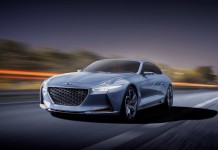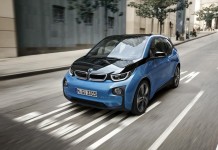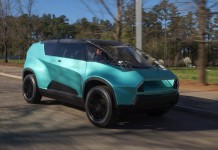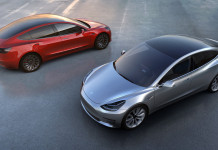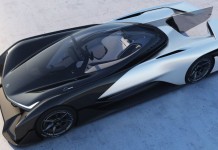With a jump-start from a new quick charging system, Norwegian electric carmaker THINK is taking aim at the US market with a new assembly facility set to begin operations later this year.
The maker of quirky plug-in electric minicars, which has been operating in Europe for 19 years, is among a number of small and large players looking to cash in on what is expected to be a growing market for electric vehicles.
THINK chief executive Richard Canny said at the Washington Auto Show this week that the company expects to begin work this year at an assembly facility in Elkhart, Indiana, and begin production in early 2011, with the goal of producing as many as 20,000 vehicles a year.
Canny, an Australian who spent 25 years with Ford Motor Co. in various locations, said the tiny startup is able to compete against some of the automotive giants in the marketplace.
“Unlike the market for conventional cars, the playing field is more level in the electric vehicle market,” Canny said in an interview with AFP.
“THINK has 19 years of experience. We build cars that start in the Scandinavian winters. The speed of a small company like ours will offset the scale of the large companies.”
US sales will begin later in 2010 from cars produced at a facility in Finland, Canny said. Initial sales are likely to be to company or government fleets, although some direct sales to consumers may take place as well, he noted.
The privately held group is backed by investors from the US and elsewhere, with a large stake held by EnerDel, an Indiana manufacturer of lithium-ion batteries that will be the supplier for THINK cars in the US.
A boost for the startup automaker came with an announcement Tuesday by a developer of vehicle charging systems that claims to provide an 80 percent charge in 15 minutes, at a price of just two to three dollars.
THINK will work with California-based AeroVironment, Inc. on the new charging stations that will be installed in major cities. The fast-charge system employs a protocol developed by Tokyo Electric Power Company and has been used on development vehicles.
“This is a major leap forward for electric vehicles,” said Canny. “The development and deployment of very-fast-charge stations will help speed the electrification of automobiles in the United States and globally.”
THINK has sold about 1,600 vehicles in Europe, but only a few hundred are the new generation THINK City, which has top speed of more than 110 kilometers (70 miles) per hour and a range of more than 160 kilometers (100 miles) per full charge.
Canny said the car is likely to be sold at under 30,000 dollars, and that volume may eventually bring prices down to the “low 20,000 dollar” range. Although the price is higher than many conventional cars, that is offset by the fact that it is virtually maintenance-free and has operating costs of about two cents per mile, or less than a penny per kilometer.
Amid surging interest in electric cars, Canny said the company is not yet profitable but “we are moving toward profitability.”
THINK is not alone in the race for the electric car market.
Another startup, US-based Wheego, announced at the Washington Auto Show that it would begin sales of its all-electric car this year in the United States at under 35,000 dollars.
“We’re five guys in Atlanta, so we don’t have the overhead some of the bigger companies have,” said marketing director Les Seagraves.
Some analysts say the road may not be smooth for electric cars in the United States.
A study by Boston Consulting Group found that electric-car battery costs are expected to fall sharply over the coming decade, but are unlikely to drop enough to spark widespread adoption of fully electric vehicles without a major breakthrough in technology.
“For years, people have been saying that one of the keys to reducing our dependency on fossil fuels is the electrification of the vehicle fleet,” said Xavier Mosquet, leader of BCG’s global automotive practice and a coauthor of the study.
“The reality is, electric-car batteries are both too expensive and too technologically limited for this to happen in the foreseeable future.”

